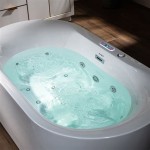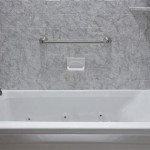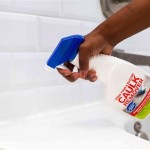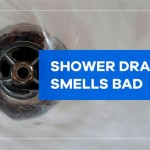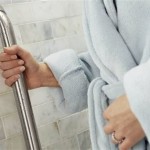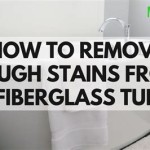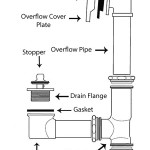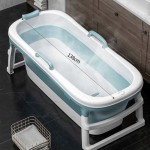Tent Bathtub Floor Materials in Singapore: A Comprehensive Guide
The increasing popularity of portable or tent bathtubs in Singapore has brought to the forefront the importance of selecting suitable floor materials to complement these installations. Tent bathtubs, often chosen for their ease of setup, mobility, and space-saving attributes, require a well-chosen floor surface to provide stability, waterproofing, and overall user safety and comfort. This article provides a detailed examination of various floor materials suitable for tent bathtubs in the Singaporean context, considering factors such as cost, durability, water resistance, slip resistance, and aesthetic appeal.
The ideal floor material should effectively prevent water damage to the underlying floor, provide a comfortable and secure surface for users, and withstand the weight and potential shifting of the tent bathtub. Furthermore, given Singapore's humid climate, the material should be resistant to mold and mildew growth. This guide aims to equip individuals with the knowledge necessary to make informed decisions when selecting the appropriate floor material for their tent bathtub setup.
Key Considerations When Choosing Floor Materials
When selecting a floor material for a tent bathtub in Singapore, several essential factors must be taken into account to ensure safety, durability, and hygiene. These considerations will influence the long-term performance and suitability of the chosen material.
Water Resistance and Waterproofing
The primary function of the floor material is to prevent water from seeping through to the underlying floor. Water leakage can lead to significant structural damage, mold growth, and potential health hazards. Materials like vinyl, rubber, and certain types of plastic are inherently waterproof. However, it is crucial to ensure that the installation is seamless and that any joints or seams are properly sealed to prevent water penetration. Consider using waterproof membranes or underlayments beneath the floor material for added protection, especially if the existing floor is porous or susceptible to water damage. The effectiveness of a material’s waterproofing capabilities directly impacts the longevity and maintenance requirements of the entire setup.
The use of sealants is particularly important in areas prone to standing water, such as around the edges of the tent bathtub. Choosing a sealant that is both waterproof and resistant to mildew growth is critical. Regularly inspecting and resealing these areas as needed can help prevent water damage and maintain a hygienic environment. The level of water resistance required will also depend on the frequency of use and the potential for spills or leaks. For frequent users, a higher level of waterproofing is essential.
Slip Resistance and Safety
Safety is paramount, especially considering the wet and slippery conditions inherent to a bathtub environment. The floor material should provide adequate traction to prevent slips and falls. Materials with textured surfaces, such as textured vinyl or rubber mats, are ideal for enhancing grip. It is also important to consider the slip resistance when the material is wet, as some surfaces can become dangerously slippery when exposed to water. Look for materials with a high coefficient of friction, which indicates a greater level of slip resistance. The safety of users, particularly children and the elderly, should be a top priority when selecting a floor material.
The addition of non-slip coatings or treatments can further enhance the safety of the floor surface. These coatings can be applied to existing materials to improve their slip resistance. Regularly cleaning the floor surface is also important to maintain its slip resistance, as dirt and grime can reduce traction. Furthermore, consider the use of grab bars or other safety devices to provide additional support and stability for users entering and exiting the tent bathtub. The combination of a slip-resistant floor material and appropriate safety devices can significantly reduce the risk of accidents.
Durability and Maintenance
The floor material should be durable enough to withstand regular use and the weight of the tent bathtub and its occupants. Materials like PVC and reinforced vinyl are known for their durability and resistance to wear and tear. The material should also be easy to clean and maintain, as the bathtub area is prone to spills and soap residue. Materials that are resistant to stains and mildew growth are particularly desirable, as they require less frequent and less intensive cleaning. Consider the long-term maintenance requirements of the material, including the need for resealing or refinishing. Choosing a durable and easy-to-maintain material can save time and money in the long run.
The thickness of the floor material also plays a role in its durability. Thicker materials tend to be more resistant to punctures and tears. Regularly inspecting the floor surface for signs of damage, such as cracks or tears, is important to prevent further deterioration. Promptly repairing any damage can extend the lifespan of the floor material and prevent water damage. The use of protective mats or pads beneath the tent bathtub can also help to distribute the weight and reduce the risk of damage to the floor surface. Proper care and maintenance are essential for ensuring the longevity and performance of the chosen floor material.
Popular Floor Material Options for Tent Bathtubs in Singapore
Several floor materials are commonly used with tent bathtubs in Singapore, each offering distinct advantages and disadvantages. Understanding the characteristics of these materials is crucial for making an informed decision that aligns with specific needs and preferences.
Vinyl Flooring
Vinyl flooring is a popular choice due to its water resistance, durability, and relatively low cost. It is available in various styles, including sheet vinyl, vinyl tiles, and luxury vinyl planks (LVP). Sheet vinyl offers the best water resistance as it minimizes seams. Vinyl tiles are easier to install but may be more susceptible to water penetration at the seams. LVP provides a more aesthetically pleasing option, mimicking the look of wood or stone, while still offering good water resistance. Vinyl flooring is also relatively easy to clean and maintain, making it a practical choice for a tent bathtub area.
When selecting vinyl flooring, it is important to consider the thickness and wear layer. A thicker wear layer provides greater protection against scratches and wear and tear. Look for vinyl flooring that is specifically designed for use in wet areas, as these products often have enhanced water resistance and slip resistance. Proper installation is crucial to ensure the long-term performance of vinyl flooring, so it is recommended to hire a professional installer if you are not experienced with flooring installation. Regular cleaning with a mild detergent can help maintain the appearance and hygiene of vinyl flooring.
Rubber Flooring
Rubber flooring is another excellent option, known for its exceptional water resistance, slip resistance, and durability. It is available in various forms, including rubber tiles, rubber mats, and rolled rubber. Rubber flooring is particularly well-suited for areas where safety is a primary concern, as it provides excellent traction even when wet. It is also a comfortable surface to walk on, making it a good choice for a frequently used tent bathtub area. Rubber flooring is generally more expensive than vinyl flooring, but its superior performance and durability can justify the higher cost.
Rubber flooring is also resistant to impact and abrasion, making it a good choice for areas where heavy objects may be dropped. It is also relatively easy to clean and maintain, although some types of rubber flooring may require special cleaning products to prevent discoloration. When selecting rubber flooring, it is important to consider the thickness and density. Thicker, denser rubber flooring provides greater durability and sound absorption. Regular cleaning with a mild detergent and water can help maintain the appearance and hygiene of rubber flooring. It is essential to choose rubber flooring that is specifically designed for wet areas to ensure optimal performance and safety.
Plastic Interlocking Tiles
Plastic interlocking tiles offer a convenient and versatile flooring solution for tent bathtubs. These tiles are typically made from durable, waterproof plastic, such as polypropylene or PVC. They are easy to install, requiring no special tools or adhesives, and can be easily disassembled and moved if needed. Plastic interlocking tiles are also available in a variety of colors and styles, allowing for customization and aesthetic appeal. They provide a slip-resistant surface and are easy to clean and maintain, making them a practical and cost-effective choice.
One of the key advantages of plastic interlocking tiles is their ability to allow for drainage. The raised design of the tiles allows water to flow underneath, preventing standing water and reducing the risk of mold and mildew growth. This makes them particularly well-suited for use in wet areas. When selecting plastic interlocking tiles, it is important to consider the thickness and durability of the tiles. Thicker tiles are generally more resistant to wear and tear and can withstand heavier loads. Regular cleaning with a mild detergent and water can help maintain the appearance and hygiene of plastic interlocking tiles. It is also important to ensure that the tiles are properly interlocked to prevent them from shifting or separating.
Specific Considerations for Singapore's Climate
Singapore's tropical climate presents unique challenges for floor materials. High humidity and frequent rainfall can promote mold and mildew growth, while intense sunlight can cause fading and degradation of certain materials. Therefore, it is essential to choose floor materials that are specifically designed to withstand these conditions.
Materials with antimicrobial properties or coatings can help prevent mold and mildew growth. UV-resistant materials can resist fading and discoloration caused by sunlight. Proper ventilation is also important to reduce humidity levels and prevent moisture buildup. Regular cleaning and maintenance are essential to remove dirt and grime, which can contribute to mold and mildew growth. By considering the specific climate conditions in Singapore, individuals can select floor materials that will provide long-lasting performance and maintain a hygienic environment for their tent bathtub.
In addition, regular inspection of the floor surface is crucial to identify and address any signs of damage or deterioration. Cracks, tears, or discoloration should be promptly addressed to prevent further damage and maintain the integrity of the floor material. Proper installation techniques, such as sealing seams and edges, are also essential to prevent water penetration and protect the underlying floor. By taking these specific considerations into account, individuals can ensure that their chosen floor material is well-suited for Singapore's climate and will provide a safe, durable, and hygienic surface for their tent bathtub.
What Exactly Is A Tent Bathtub
What Exactly Is A Tent Bathtub

Durable And Stylish Tent Flooring Ideas For Glamping Sites

6m Glass Dome Glamping Tents With Bathroom For Resort House Rax Tent

Durable And Stylish Tent Flooring Ideas For Glamping Sites

Glamping Tents For By Strohboid Luxury Tent To Buy
.png?strip=all)
Six Moon Designs Deschutes Bundle Ultralight Backng Tarp 68travel

Buy A Glamping Tent With Bathroom丨glitzcamp

The One

8m Glass Dome For Glamping Hotel And Family Resort With Tempered

